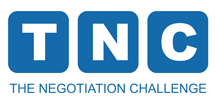Active listening is a communication technique that involves paying attention to what the other person is saying, both verbally and nonverbally, and then reflecting back what you have heard to ensure understanding. It is a critical skill in negotiation because it allows you to build rapport with the other party, understand their needs and concerns, and identify potential areas of compromise.
Here are some of the benefits of active listening in negotiation:
- It builds rapport. When you actively listen to the other party, you are showing them that you are interested in what they have to say. This can help to build trust and rapport, which are essential for successful negotiation.
- It helps you to understand the other party’s needs and concerns. When you actively listen, you are paying attention to both the verbal and nonverbal cues that the other party is giving off. This can help you to understand what they are really looking for in the negotiation.
- It helps you to identify potential areas of compromise. As you listen to the other party, you may be able to identify areas where their needs and your needs overlap. This can help you to identify potential areas of compromise that could lead to a mutually beneficial agreement.
Here are some tips for practicing active listening in negotiation:
- Pay attention to both the verbal and nonverbal cues that the other party is giving off. What are they saying? How are they saying it? What are their facial expressions? Their body language?
- Reflect back what you have heard to ensure understanding. This can be done by paraphrasing what the other party has said or by asking clarifying questions.
- Don’t interrupt. Let the other party finish their thoughts before you respond.
- Be respectful. Even if you disagree with what the other party is saying, be respectful of their point of view.
By following these tips, you can improve your active listening skills and increase your chances of success in negotiation.
